Tiny Thoughts
Vietnamese Version: https://kenkai.vn/giao-duc/bi-quyet-thanh-cong-dong-hanh-cung-ban-chat/
*
If you want new ideas, read old books.
**
Stop trying to be spectacular. Start being consistent.
Your reputation isn't built on your best day. It's built on your worst. Warren Buffett's fortune was built on avoiding losses. Tom Brady became the GOAT not because of his highlight-reel throws, but because he rarely made a bad play.
Anyone can occasionally go to the gym, eat a healthy meal, and have a productive day. Doing it once in a while is common and doesn't mean much.
Moments don't make legends. Consistency does. And the hardest consistency isn't in doing brilliant things but avoiding stupid ones. Every mistake puts you in hard mode, forcing you to make up lost ground.
Anyone can do it once. The outliners do it often.
***
Stop fighting your nature. Start winning with it.
You're born with certain core traits. Fighting them is like being a sprinter forced to run marathons – exhausting and futile. But these "limitations" can become your biggest advantage.
Your instincts, personality, and preferences aren't flaws - they're features.
When something seems to be holding you back that you can't change, the key is to change your environment. What's a headwind in one situation is a tailwind in another.
The introvert's edge in sales: Don't fake extrovert energy. Win through deep research and lasting relationships. While others work the room searching for a transaction, you can build long-term relationships.
Not a morning person? Embrace it: That 5 AM workout routine you keep missing? Stop punishing yourself. Build your peak performance hours into your schedule.
Are you obsessive about the details? Use it to your advantage. While others skim the surface, your thoroughness spots opportunities they miss and avoids costly mistakes they make. What others see as obsessiveness becomes an uncopyable competitive edge.
The most successful people don't fight their nature. They architect their environment to amplify it.
Stop asking: "How do I fix myself?" Start asking: "How do I position myself where my natural traits are assets?"
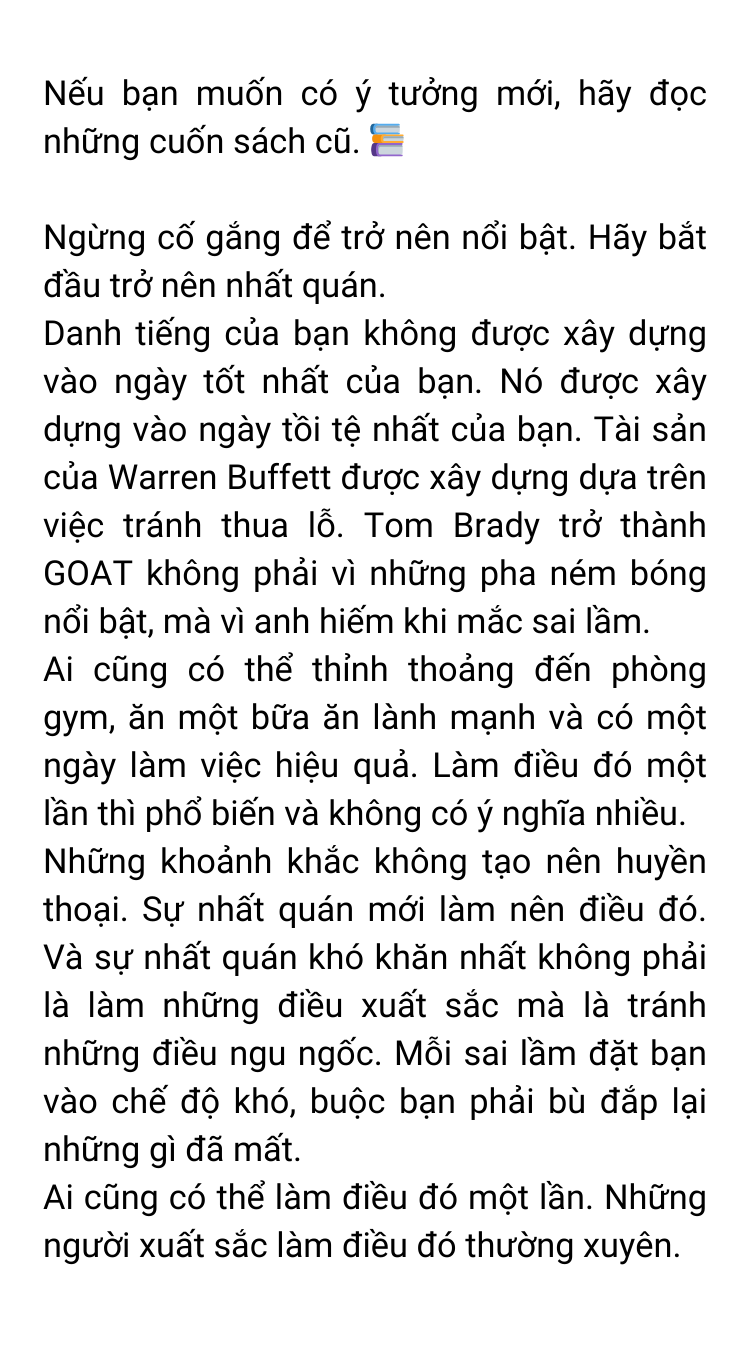
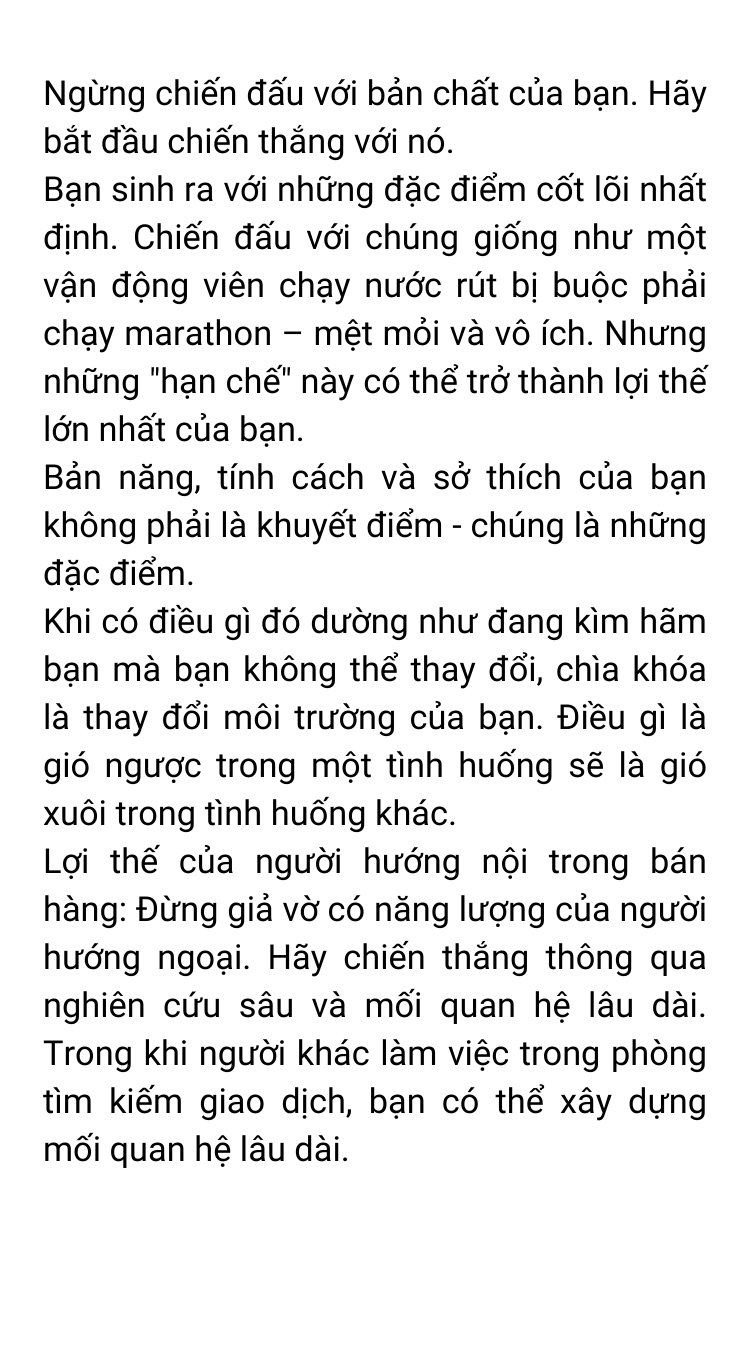

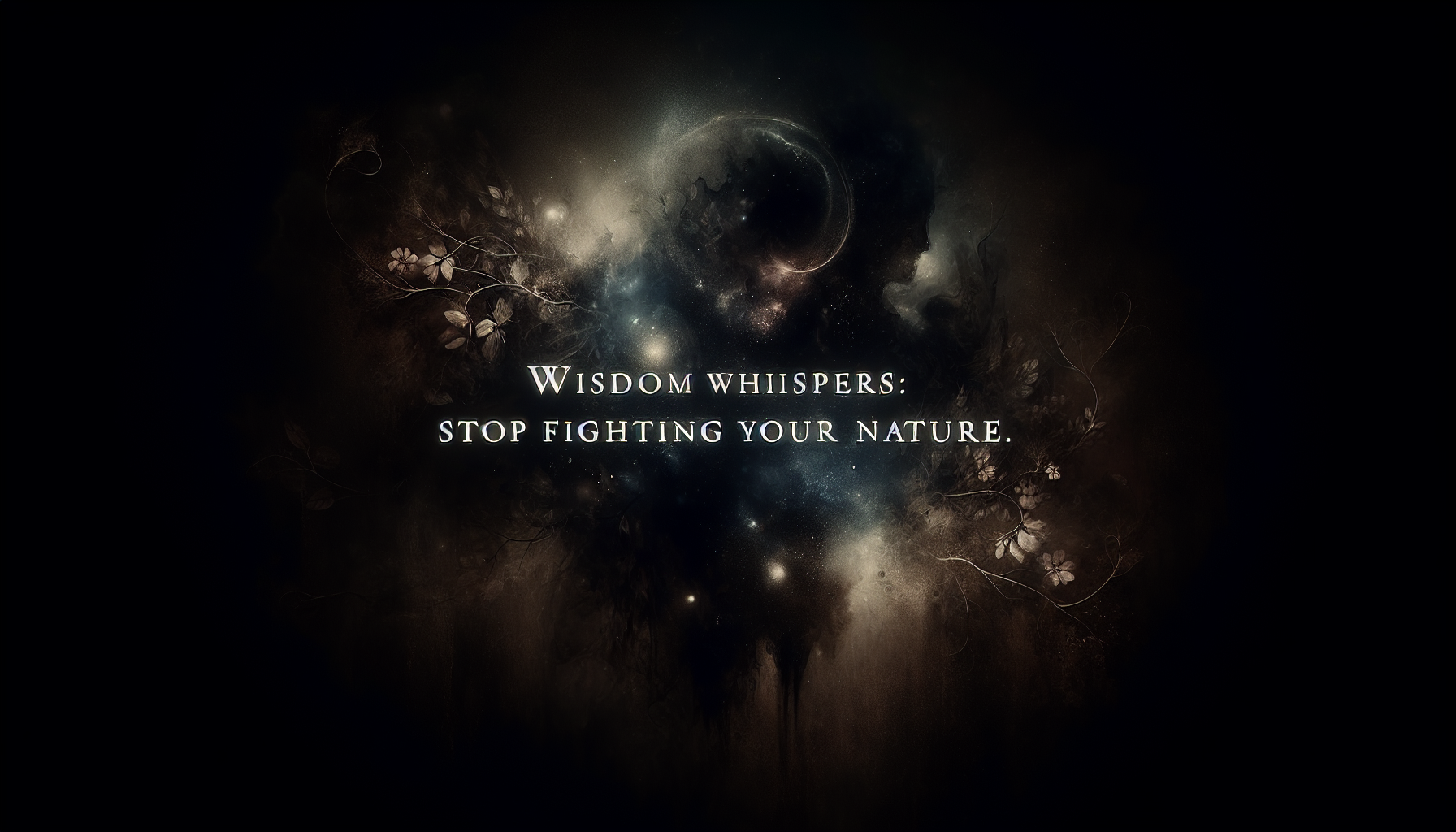
Insights
*
Jeff Bezos on not under-estimating opportunity:
“I think it's generally human nature to over-estimate risk and under-estimate opportunity. ... The risks are probably not as big as you perceive and the opportunities may be bigger than you percieve.”
**
Marie Curie on improving yourself:
"You cannot hope to build a better world without improving the individuals. To that end each of us must work for his own improvement, and at the same time share a general responsibility for all humanity, our particular duty being to aid those to whom we think we can be most useful."
***
John Collison, Co-founder of Stripe, on the necessary level of tenacity:
"As you become an adult, you realize that things around you weren't just always there; people made them happen. But only recently have I started to internalize how much tenacity *everything* requires. That hotel, that park, that railway. The world is a museum of passion projects."

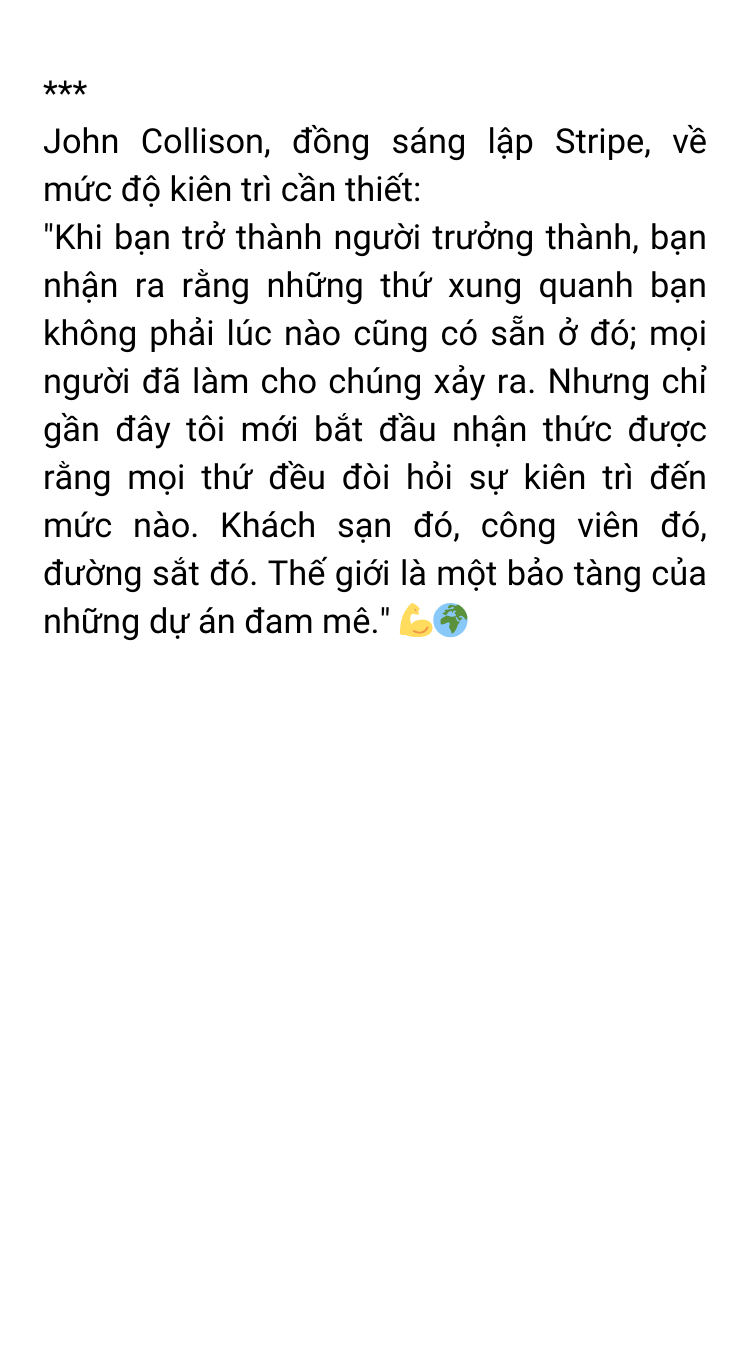

Mental Model of the Week
V3 | Systems | Bottlenecks
Bottlenecks are the choke points, the narrow parts of the hourglass where everything slows down. They’re the constraints that limit the flow, the weakest links in the chain that determine the strength of the whole. In any system, the bottleneck is the part holding everything else back.
The tricky thing about bottlenecks is that they’re not always obvious. It’s easy to focus on the parts of the system that are moving quickly and assume everything is fine. But the real leverage is in finding and fixing the bottlenecks. Speed up the slowest part, and you speed up the whole system. This is the theory of constraints in a nutshell. Figure out your bottleneck and focus all your efforts on alleviating it. Don’t waste time optimizing the parts that are already fast. They’re not the limiting factor.
However, bottlenecks aren’t always the villains we make them out to be. Sometimes, they’re a necessary part of the system. Think of a security checkpoint at an airport. It slows everything down, but it’s there for a reason. Remove it, and you might speed things up, but at the cost of safety.
The key is to be intentional about your bottlenecks. Choose them wisely and make sure they serve a purpose. A deliberate bottleneck can be a powerful tool for focusing effort and maintaining quality, while an accidental bottleneck is just a drag on the system.
Bottlenecks are the leverage points where a little effort can go a long way.
— Source: The Great Mental Models v3: Systems and Mathematics
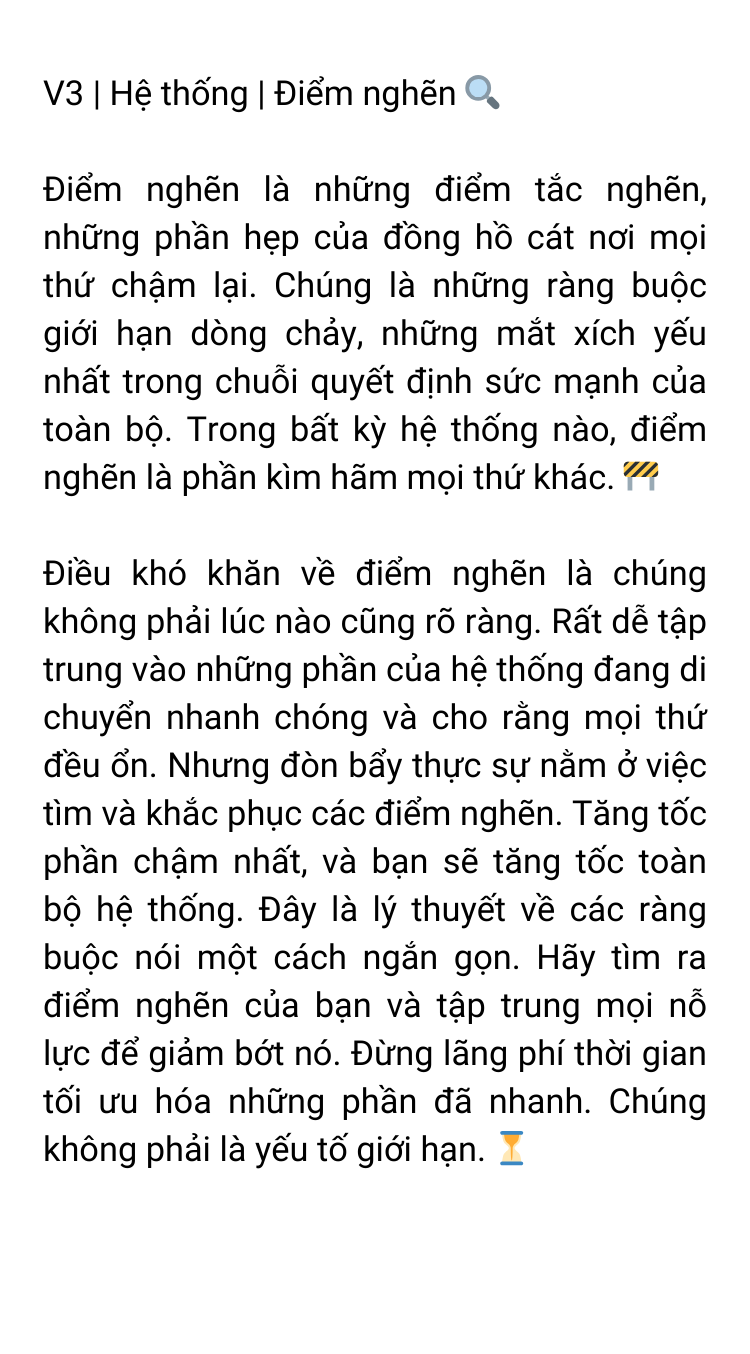
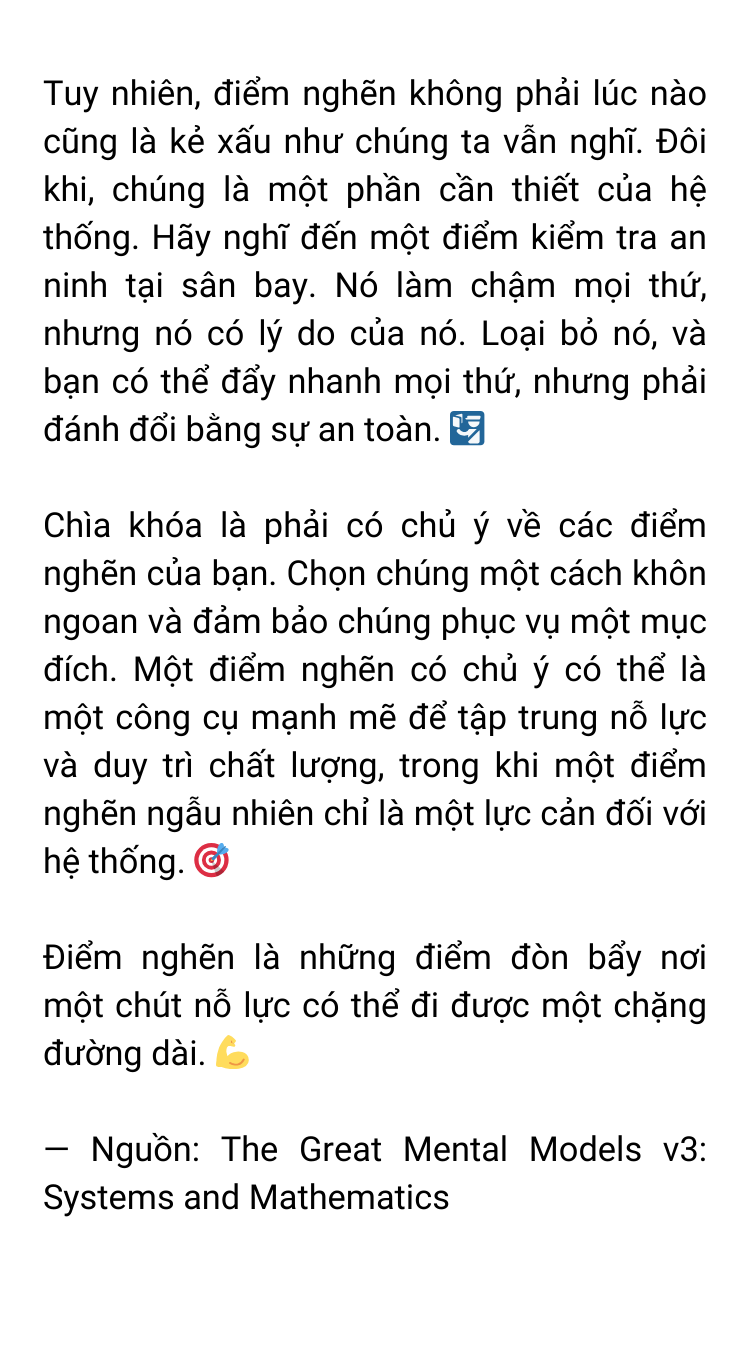

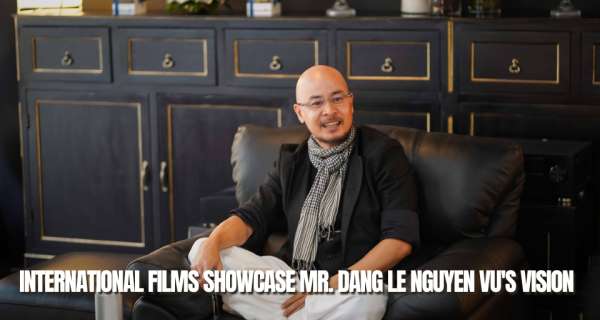



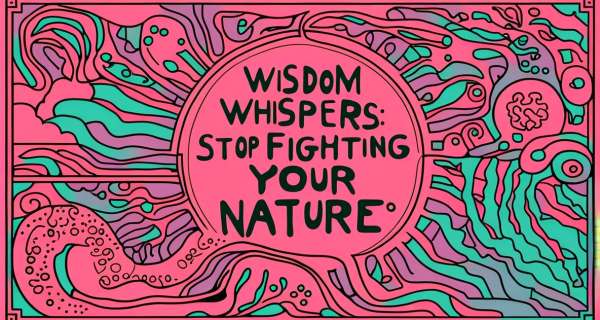
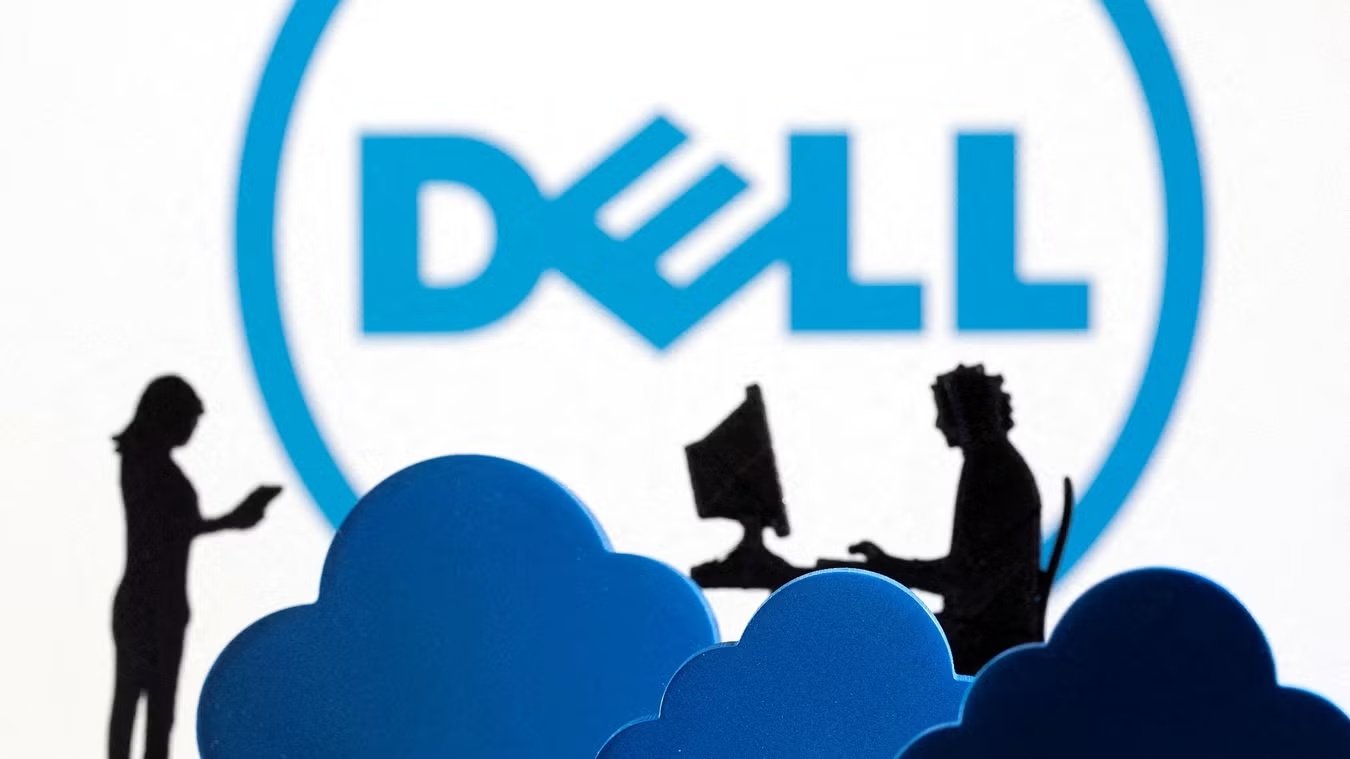








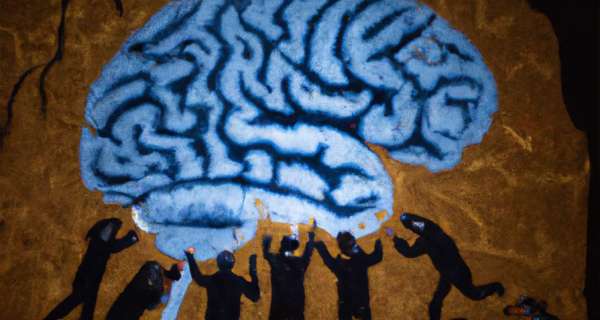

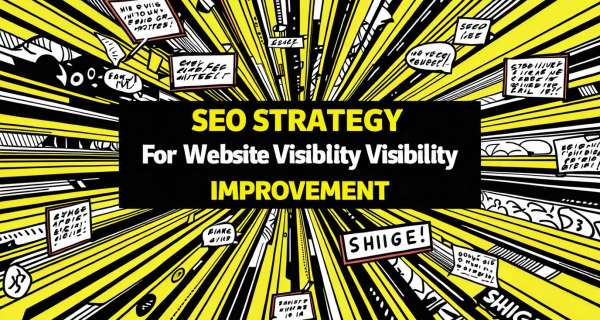
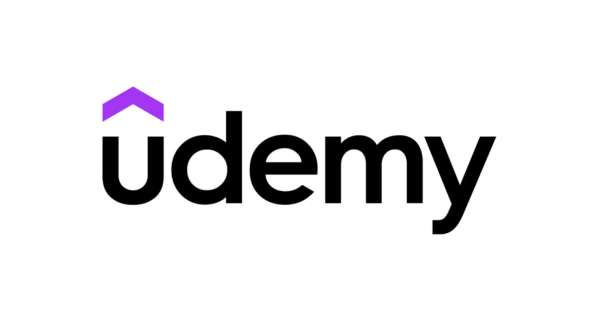
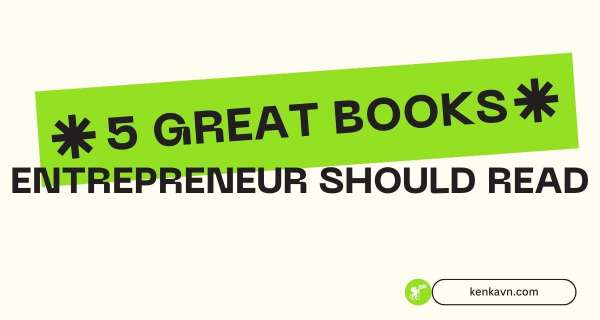

0 Commentaires